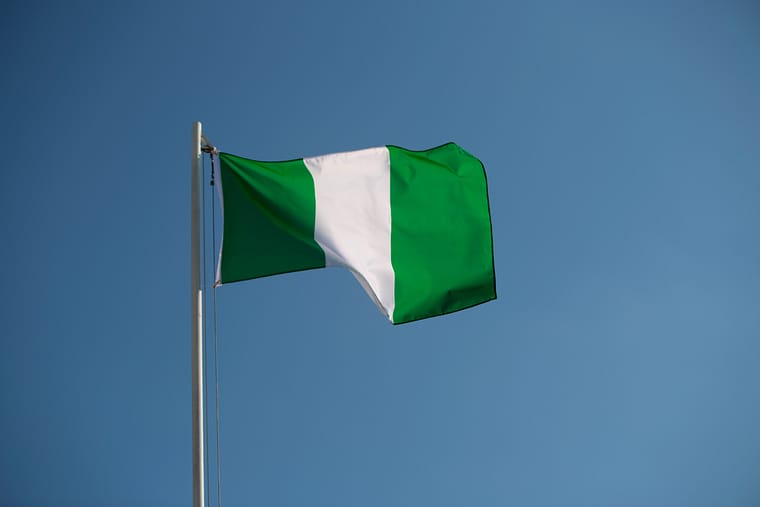13.12.2024
Nigerian Elections: the Glass A Quarter Full
Tribune
1 mars 2023

Nigeria’s Independent National Election Commission (INEC) has announced the results of the country’s February 25 elections: former Lagos State Governor Bola Tinubu will be the country’s next president. The news from this election cycle is decidedly mixed for Africa’s most populous nation.
There is some cause for modest satisfaction.
First and foremost, the very fact that elections took place – given some of the Nigerian and regional precedent – is important. While Nigeria arguably has a strong democratic culture, the country has seen long periods of military rule in its past. Struggling democracies in places like Mali and Burkina Faso have recently given way to military regimes. There was no suggestion of that in Nigeria’s 2023 contest. The polling did see elections-related violence – unfortunately not uncommon in Nigeria’s rough and tumble political culture – but not on a nationwide scale. Initial figures suggest low voter turnout, but millions of Nigerians across the nation waited for long periods to vote. The democratic process – whether flawed or not – did move forward.
The elections themselves were hotly contested. This was no sham contest where the ruling party wins 98.7% of the vote against a Potemkin opposition. Nationally known candidates from well-established parties fought a highly competitive campaign. Tinubu won about 36% of the vote, a plurality that put him well ahead of his two main competitors and gained him the presidency. But former vice president Atiku Abubakar and former Anambra Governor Peter Obi together bested Tinubu’s score. Nigeria’s constitution allows a candidate with a plurality of the popular vote to win the presidency without resort to a second round, provided he wins 25% of the vote in 24 of the 36 states and the capital territory.
There will be alternance of power. Outgoing heads of state in Africa have sometimes chaffed at term limits and sought to remain in power unconstitutionally. President Buhari will step down after serving two terms. There is some irony in the fact that retired General Buhari once also served as a most unconstitutional military ruler in the 1980s. Tinubu is from the Buhari’s All Progressives Congress (APC) party. But Tinubu is hardly considered Buhari’s “protégé” or “hand-picked successor”. Tinubu beat out Buhari’s vice president and his transportation minister in an internal party primary in June.
These elections also leave us with considerable reason for concern.
The electoral process itself was far from perfect, even by Nigeria’s relaxed standards. This was true despite an effort by the Nigerian Independent National Election Commission to reform the administration of elections in 2022. A preliminary statement released by the joint observer mission of two respected US NGOs was critical of a number of aspects of the polling. Beyond the violence that marred voting in some areas, the observers from the National Democratic Institute and the International Republican Institute criticized a range of logistical and technical problems. The mission noted that “the combined effect of these problems disenfranchised Nigerian voters in many areas, although the scope and scale are currently unknown”. The title of the EU observation mission’s tracks closely with the US assessment: “Elections held on schedule, but lack of transparency and operational failures reduced trust in the process and challenged the right to vote.” Given these and other issues, it is not surprising that Nigerians themselves are unenthusiastic about the state of their democracy. According to a recent Afrobarometer poll, “Satisfaction with the way democracy is working in Nigeria has met an all-decade low (21%).”
In this context, the multiple trials Nigeria faces are particularly daunting. President-elect Tinubu will see his presidency beset with a host of issues that demand immediate attention. Right out the gate, there will be a certain challenge to his own legitimacy, with both Atiku and Obi already calling for a redo of flawed elections. Irrespective of the results of any challenges, with well below 50% of the vote Tinubu hardly enters office with a ringing mandate. Security threats – criminal, political, and terrorist – will continue to beset his security forces. Related to this will be the impact of security challenges in the oil-rich Niger Delta, which has impacted Nigeria’s petroleum production, the lifeblood of Nigeria’s economy. The global economic situation in the aftermath of the Covid-19 outbreak and the war in Ukraine have led to stagnant growth in a country with an enormous youth bulge. Poverty and corruption are endemic.
It is not clear that Nigeria now has the president to address these concerns. Tinubu had a mixed reputation as governor of Lagos State in the 2000s. He claims to have been a successful reformer in the country’s most populous state, and he did win reelection as an opposition candidate in a cycle when the ruling party did particularly well in his region. Tinubu also has the advantage of being both a southerner and a Muslim, which he hopes will allow him to make inroads with the largely Muslim north of Nigeria. But Tinubu has a widespread reputation for corruption and shady dealings. Since leaving office he has operated more as a political kingmaker and backroom dealmaker than as a political leader with a keenly developed sense for the aspirations of his people. His presidential ambitions were widely known, and his campaign motto – “It’s my turn” – summarizes his case for leadership of Nigeria succinctly. At 70, Tinubu is hardly a young man, although he is sprightlier than his now 80-year-old predecessor. Young supporters of Peter Obi, in a country where the median age is 18 years, will be particularly disappointed with another round of geriatric leadership.
Nigeria has once again stumbled through a difficult democratic process, and it’s the new president will struggle to overcome the country’s many challenges. The glass isn’t empty, but it is a long way from full.
__________________
Ambassador Hawkins was U.S. Consul General in Lagos, Nigeria between 2012 and 2015.